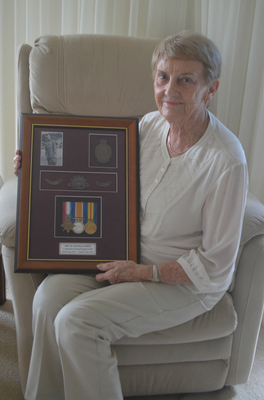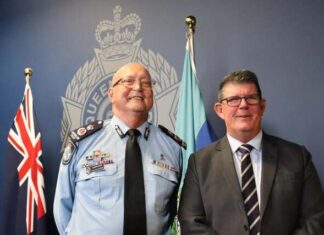By KATIE DE VERTEUIL
PRIVATE Jack Horace White was aboard the very first fleet to land at Gallipoli and the last to leave.
At just 18 years of age, the young soldier of Hobart faked his details with the approval of his parents, to enlist in the 1st Australian Clearing Hospital, Australian Imperial Force in September 1914.
Private White is today remembered by his youngest daughter Vonnie Cooper, a resident of Tewantin.
According to records compiled by his relatives, Jack worked in what was known as a casualty clearing station, the most forward unit on the battlefront to provide emergency surgery and medical assistance, including evacuation.
This freed the forward field ambulances from the necessity of holding wounded soldiers, a task which compromised their mobility and prevented them from moving with the brigades they supported.
Once allotted an area of beach to establish the clearing station, the unit found the number of casualties waiting to be treated overwhelming for their resources.
The unit was clearing casualties for two divisions (30,000 men) while constantly being exposed to shrapnel from artillery fire.
In the first three days alone it treated some 2100 casualties, working 20-hour days.
The unit remained at Gallipoli until the last day of evacuation (20 December 1915).
Jack was among the final party from the unit which consisted of one officer, one non-commissioned officer and six men. Following the evacuation from Gallipoli Jack went on to work in a similar unit at Alexandria, Egypt.
In May 1916 he was then “taken on strength” with the 15th Field Ambulance and in June that same year he was sent to Marseilles in France.
Immersed in the horrors of trench warfare, Jack’s tasks included retrieving the dead and wounded under heavy fire. During the second battle of Bullecourt in May 1917, he was struck by shrapnel, which left wounds to his right arm and both his feet.
Following the conclusion of Bullecourt in June, Jack evacuated to England where he was admitted to hospital.
His right arm was subsequently amputated and removed. Jack returned to Australia on 1 November 1917 and was discharged in June the following year.
He married Ethel Kate Cockayne in Hobart on 26 May, 1920 and together they had four daughters – Peg, Patricia, Ruth and Vonnie.
In his employment Jack continued to care for the casualties of war as secretary of the Repatriation Hospital in Hobart.
Upon returning from war, Jack never spoke of the horrors he’d seen.
Indeed, he rarely spoke of those years at all.
“The only thing he spoke of war related was his time in Egypt where the men wore funny hats,” Vonnie said.
“My father was a deeply humble man and while his physical injuries were a clear reminder of what he had been through he never liked to bring the battlefield back to life.”
With the loss of his right arm, Jack had the challenge of re-learning how to do everything, and he was certainly determined.
“The only thing Dad couldn’t do was cut up his meat, which mum would do, always away from the table though, so as not to embarrass him in front of guests,” Vonnie said affectionately.
“Oh and driving was always interesting as before the time of indicators, Dad would have to throw his right sleeve out the window,” she laughed.
“The day our car had indicators installed it was like all his Christmases had come at once.”
While Vonnie’s light-hearted tales brightened the sadness of the solemn conversation, it did not disguise the heartache the war had brought to their family.
Indeed, it is rare that Vonnie attends Anzac ceremonies, due to the emotions which they stir.
“I’d like to go to pay my respects but I went one year and I cried from start to finish,” Vonnie said.
“I couldn’t cope.
“I guess it was the way we were brought up.
“Those memories were best left in the past.”
Private Jack Horace White passed in January 1966, aged 70.
For the service and sacrifice he and his fellow servicemen paid for our country, lest we forget.










